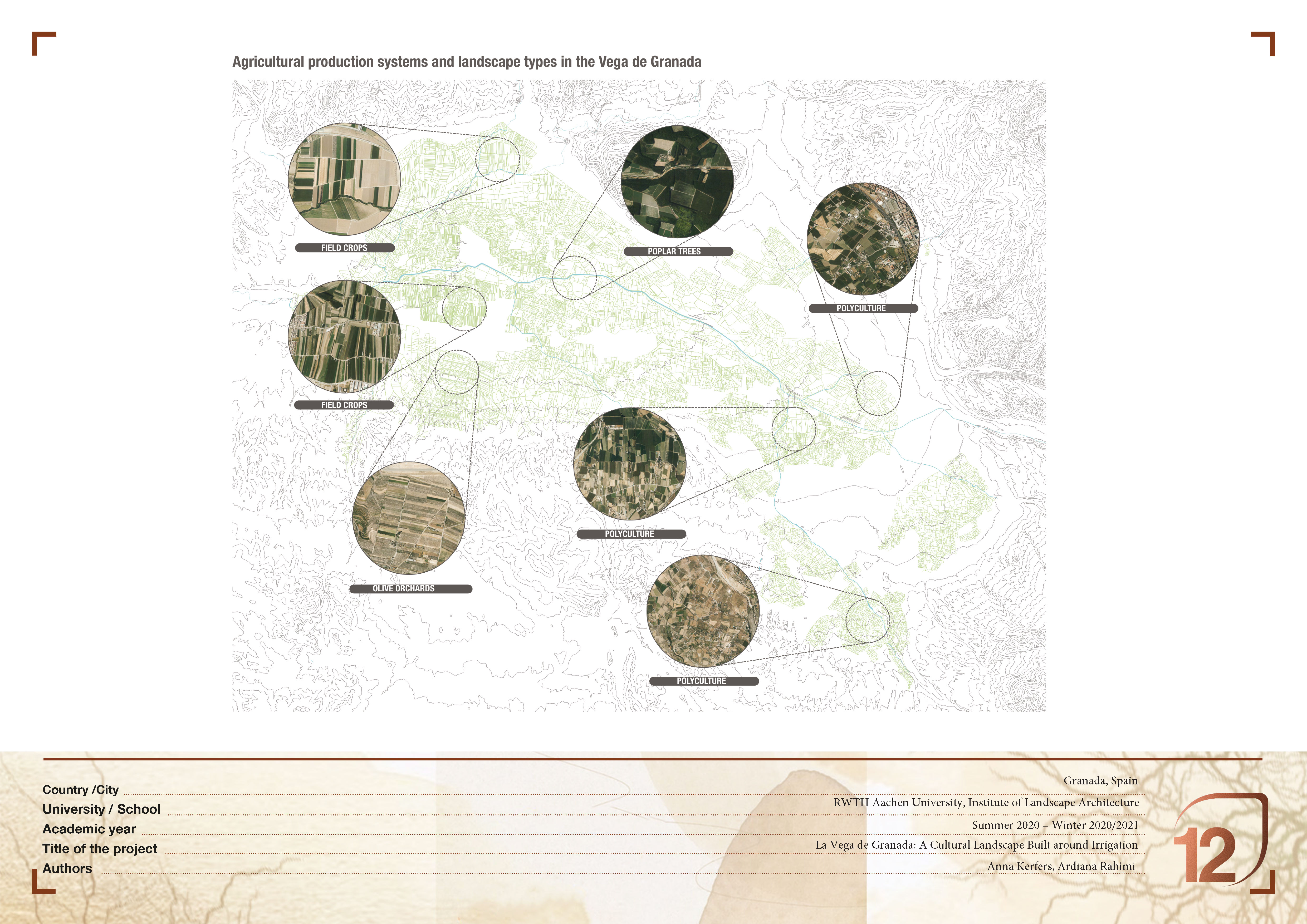
La Vega de Granada: A Cultural Landscape Built around Irrigation
Research Module “Exploring Urban Agricultural Heritage” (2 semesters, 6 ECTS)
RWTH Aachen University
Agriculture is facing the challenges of climate change and de-fossilisation which can have a massive impact on our contemporary, industrialised agricultural production systems and agricultural landscapes. Agricultural heritage systems can be an important inspiration and knowledge base to adapt agriculture to local conditions and reintroduce a resource efficient production.
The student research on the Vega de Granada traces back how a cultural landscape has been constructed and transformed around irrigation for agriculture since Moorish reign in Andalusia. The physical irrigation infrastructure as well as the knowledge and social customs for managing it have been transmitted over centuries and allow an optimised use of the water resources in dry conditions. The different eras of building and extending the irrigation system can still be read with the help of the landscape analysis. The cultivated crops have been changing throughout history, but recent years see a return from industrialised monocultures of “magic crops” like sugar beet or tobacco towards a polyculture.
The example of the Vega can teach how water as a limited common pool resource can be distributed among different users and how its consumption can be optimised. This will be a much needed inspiration for organising agricultural landscapes of the future in which climate change will require an optimised distribution of the land and water resources. With the research module students have learned to transfer such principles to other common pool resources and contributed to the book “Urban Agricultural Heritage” published in 2022.
